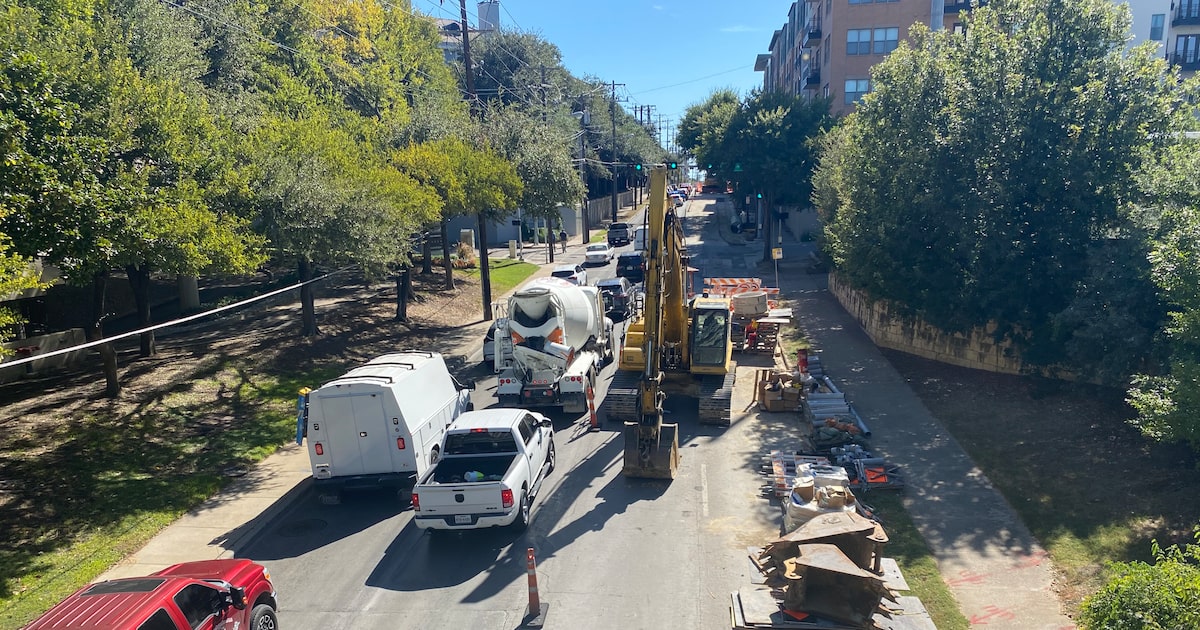You know Dallas streets are bad when a presentation at City Hall about pavement condition and American Society for Testing and Materials standards leaves you spellbound. But this week’s discussion before a City Council committee could be the start of systematically improving our cracked and cluttered roadways. Keep your fingers crossed.
Dallas’ roads are a smorgasbord of perils. Heavy steel plates placed unevenly, for months, across trenches in the pavement. Misleading lane closure signs and armies of traffic cones popping up with little warning to block lanes for no apparent reason. Piles of construction materials and debris stored in and along the roadway.
If any of those situations bother you, they probably bug Ghassan “Gus” Khankarli, too. The city’s director of Transportation and Public Works couldn’t help but add a few asides as he discussed egregious offenses during the committee meeting. He showed a slide of Lemmon Avenue with two lanes obstructed by plastic pipe, toppled barricades, leaking sandbags and coils of straw wattle, those fat ropes of hay used to slow erosion.
This one, he said, “caused my blood pressure to go up.”
Khankarli’s presentation included these main topics: how to more efficiently rate pavement deterioration to prioritize repairs, and managing work in public rights-of-way, such as streets and alleys. The city’s current method of evaluating road quality is too slow and subjective. He would like to automate that analysis, which sounds promising.
Opinion
He also wants to tighten rules related to pavement cuts and street repairs. These changes could produce better traffic flow and safety, and help preserve the roads themselves.
Take those heavy steel plates, for example. Too often city contractors fail to install them correctly. They sometimes are placed so haphazardly they damage cars and undermine the road repairs happening around them. With new policies, the city could dictate the size and placement of plates and fine contractors for leaving them in the roadway longer than necessary.
The challenge, as always, is time and money. The new, more specific regulations under consideration first have to pass legal and council review — something we hope will happen expeditiously. And they would require additional staff to enforce them.
Private contractors may argue that the new policies will complicate their work and drive up costs. But the potential benefits are worth it. Any of us who drive around Dallas can tell that road contractors’ work is often sloppy.
Dallas voters approved $521 million in bonds for street repairs last year. That’s a drop in the bucket compared to the work needed to restore the city’s 11,700 lane-miles of roadway, 1,463 traffic signals and 9,270 crosswalks.
But plainly we need better policies and practices when it comes to repairing our streets. If that requires putting more teeth in our ordinances to hold contractors to account, let’s do it.
We welcome your thoughts in a letter to the editor. See the guidelines and submit your letter here.
If you have problems with the form, you can submit via email at letters@dallasnews.com
